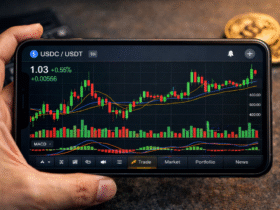US prosecutors have asked the court to return a large portion of the almost 120,000 bitcoins confiscated after the Bitfinex hack in 2016, currently valued at more than $11 billion.
Last November, the person responsible for this computer attack, Ilya Lichtenstein, was sentenced to five years in prison for money laundering related to the hack. This was published in a report of the United States Department of Justice.
Lichtenstein used advanced hacking techniques to carry out more than 2,000 fraudulent transactions, transferring 119,754 bitcoins to a wallet under your control. He later enlisted the help of his wife, Heather Morgan, to launder the funds. Morgan received an 18-month prison sentence.
In one publication on December 19 in X, Ilya reiterated multiple statements he made in court, which were relevant to his conviction; He also claimed that his wife had nothing to do with the hacking and didn’t even know about it for years.

Although the hack occurred in 2016, the story took on new dimensions in 2022, when the US Department of Justice managed to decrypt encrypted data linking Lichtenstein and his wife. Both pleaded guilty to money laundering and the former admitted to having carried out the hack. Subsequently, their collaboration was key to achieving the recovery of 80% of the stolen bitcoins.
In January 2025, the court determined that Bitfinex and users do not legally qualify as “affected” under the Mandatory Victim Restitution Law. However, prosecutors are relying on the fact that a federal judge invoked plea deals that would allow make a voluntary return to the exchange.
Specifically, US prosecutors have asked the judge to authorize the return of almost 80% of the 119,754 bitcoins stolen in the hack. This means that some 94,643 bitcoins that were recovered by the government would be returned, in addition to the cryptocurrencies generated through post-crime hard forks, such as Bitcoin Cash, Bitcoin SV and Bitcoin Gold.
Prosecutors have indicated that the return of the remaining 25,000 bitcoins will be more complicated. They explain that these funds cannot be considered part of the original loot due to Lichtenstein and Heather’s efforts to launder the money. To do this, they used sophisticated methods such as unregulated cryptocurrency exchanges and dark web markets. Additionally, they combined these bitcoins with funds from their personal and business accounts. For this reason, they are not considered part of the stolen property and must be returned through an additional seizure process.
The return of these bitcoins could have significant implications. Part of the public had speculated about the possibility that these funds could be integrated into the US government’s hypothetical bitcoin strategic reserve, a project that, if it came into effect, would give the country even greater influence over the market. cryptocurrency global. However, returning these assets to Bitfinex and its users would underline the position that certain authorities do not yet see bitcoin as an asset that can be directly used for national purposes. The truth is that this case could serve as an important precedent to accelerate efforts to establish more coherent legal policies within the industry.






Leave a Reply